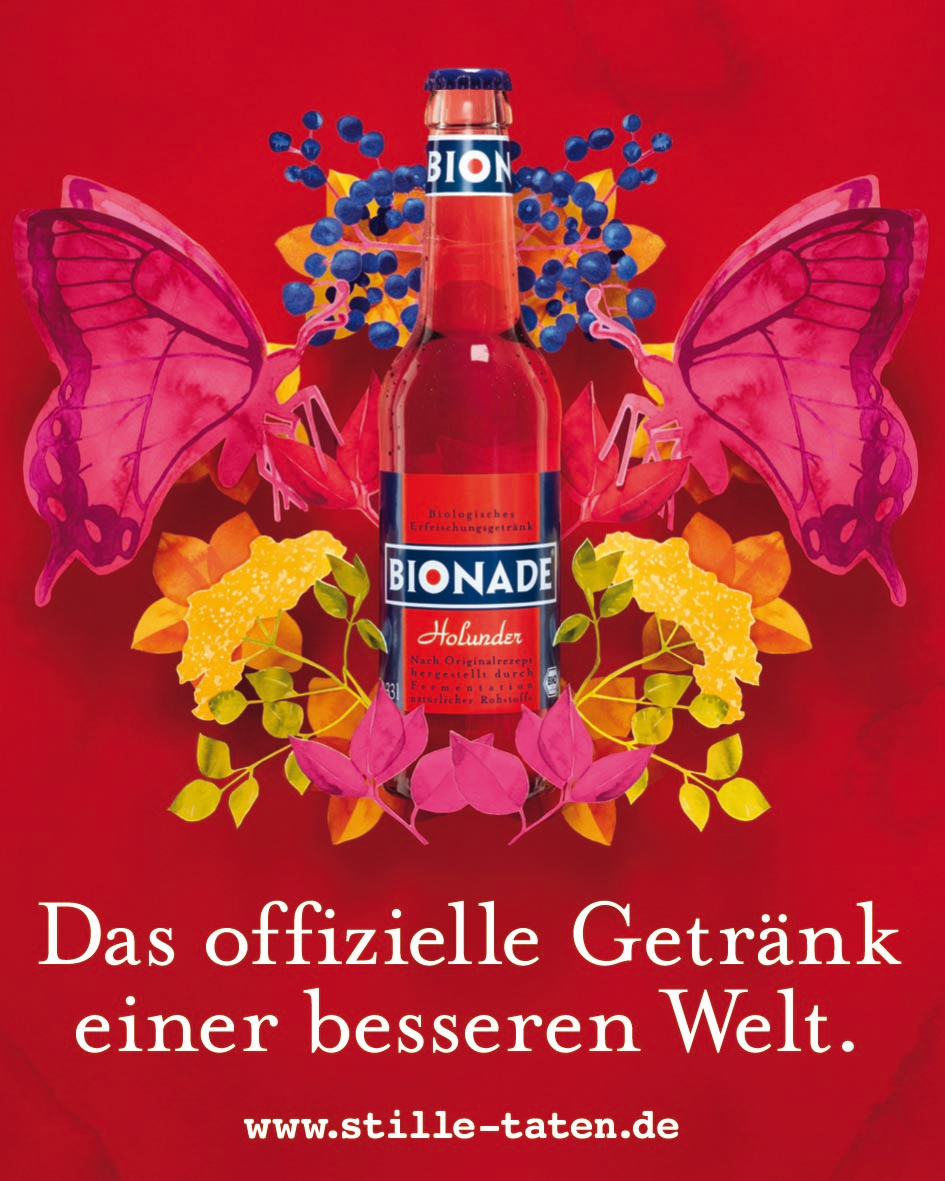Bionade adds grist to the rumour mill
Ho ho, could it be that German hacks have already had too much advent punch? At the end of November 2011 they spread the rumour that Bionade’s former owner Peter Kowalsky was in talks about setting up a cooperative to buy back Oetker’s 70 percent stake in his company.
Germany’s privately-owned Dr Oetker Group is a mighty beast. It is one of Europe’s major food companies and owns Germany’s number one brewer Radeberger. In October 2009 Radeberger acquired an estimated 70 percent of Bionade for a rumoured EUR 30 million. Add to that a hefty marketing budget and Radeberger’s initial investment came to almost EUR 50 million (USD 66 million) according to Lebensmittelzeitung, a leading German trade publication.
Bionade’s is a classic from-ashes-to-riches story. Launched 20 years ago as a fermented lemonade by a small Bavarian brewery which the Kowalsky family owned, the brand struggled to make ends meet until it became the beverage of choice of Germany’s eco-friendly consumers thanks to very shrewd guerilla marketing.
In 2007, at the height of its success, Bionade sold an estimated 200 million bottles (à 0.33 l) having conveyed the impression to its loyal consumers that it was the only one which could take on the almighty Coke. But in the following year, Mr Kowalsky made two fatal mistakes: first he decided to implement a massive price hike which consumers did not understand and which made Bionade’s sales plummet to 160 million (0.33 litre) bottles in 2008. Then he resorted to textbook advertising which did not do the brand much good either.
When in 2009 he sold a majority stake to Oetker/Radeberger, a concern not exactly known for its leadership in all things tree-hugging, Bionade’s media-savvy clientele turned up their noses and Bionade’s sales dropped to merely 60 million bottles in 2010 (estimates).
According to the rumour mill, Mr Kowalsky is now planning to found a cooperative (members get to have a say in the company in exchange for their money) which will buy out Oetker’s/Radeberger’s majority stake in the company. That way it is hoped the brand will be saved from its decline into absolute insignificance.
Though this strategy may appeal to Bionade’s remaining customers, we do not think this is likely to happen.
It’s a sad but indisputable fact that the eco-lemonade segment in Germany is dead. Over the years not a single competitor has managed to massively benefit from Bionade’s troubles. So why should any sandal-wearing idealist spend money on a rescue mission if it is far from clear that Mr Kowalsky has the marketing clout to turn around a company which he got into trouble in the first place?
Besides, what would a sale of Bionade do to Radeberger’s image? German market observers would immediately raise their hands and say that this was an attic sale meant to smarten up Radeberger itself for an imminent sale. For years, Oetker has tried to defy such allegations.
So perish the thought that Radeberger will sell Bionade any time soon.


